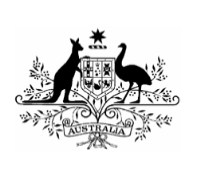Tax
Australian Large Banks Cry Foul Over New Government Tax

The Australian government intends to tax banks, provoking understandable pushback from lenders pointing out that the cost will be shouldered by the general public in the end.
The Australian government’s planned rise in taxes on banks as part of a budget package has drawn fire from lenders in the country, who have argued that the cost impact will ultimately be passed on to the general public.
Australian Treasurer Scott Morrison this week brought out a new budget which included a surprise rise in tax on the country’s largest banks, taking effect from July. Morrison was quoted saying that A$6.2 billion ($4.6 billion) will be raised over the next four years by the levy on ANZ, Westpac, National Australia Bank, Commonwealth Bank and Macquarie.
“The major bank tax will impact millions of everyday Australians who are employees, customers or shareholders of banks,” Andrew Thorburn, chief executive of National Australia Bank, said in a statement.
“It is not just a tax on a bank. It is a tax on every Australian who benefits from, and is part of, our industry,” he said, adding that there are 10 million NAB clients, as well as 570,000 direct shareholders.
“A tax cannot be absorbed. This tax is borne by these people.
It is not possible to impose a tax without an impact on
people, and therefore the wider community,” Thorburn said.
ANZ also criticised the move.
“The bank tax announced in last night’s Federal Budget is regrettable policy. The reality is this is a tax on the millions of ordinary Australians who are bank shareholders and bank customers,” Shayne Elliott, CEO of the bank, said.
“This additional tax fails to recognise the banking sector is already the largest taxpayer in corporate Australia contributing $11.5 billion each year to government revenue. The sector has also significantly strengthened its capital and liquidity base to ensure it is unquestionably strong and does not have to rely on implicit guarantees from government,” Elliott said.
“We believe the initial public support for the tax will prove to be misplaced and the speed which it is likely to pass into law highlights how divisive the banking industry’s relationship with many in Parliament and the broader community has become,” he added.
Editor’s note: One suspects that the policymakers who enact bank taxes know that the cost – taxes are a cost – will be passed on to the wider public in the end. In a number of countries such as the UK, taxes have been levied on banks, seen as a politically easy target in the wake of the 2008 financial crisis. But while defending banks from such levies might be a minority pursuit, the executives quoted here are surely right to say that the effects of levies are shouldered by consumers, depositors, borrowers and shareholders. All taxes are ultimately paid by people. Such a levy comes at a difficult time; Australian banks have already retrenched some of their operations, with ANZ, for example, selling off Asian wealth and retail banking operations. Levies are like tariffs to some extent and they are likely to be music to the ears of smaller banks and foreign firms.
